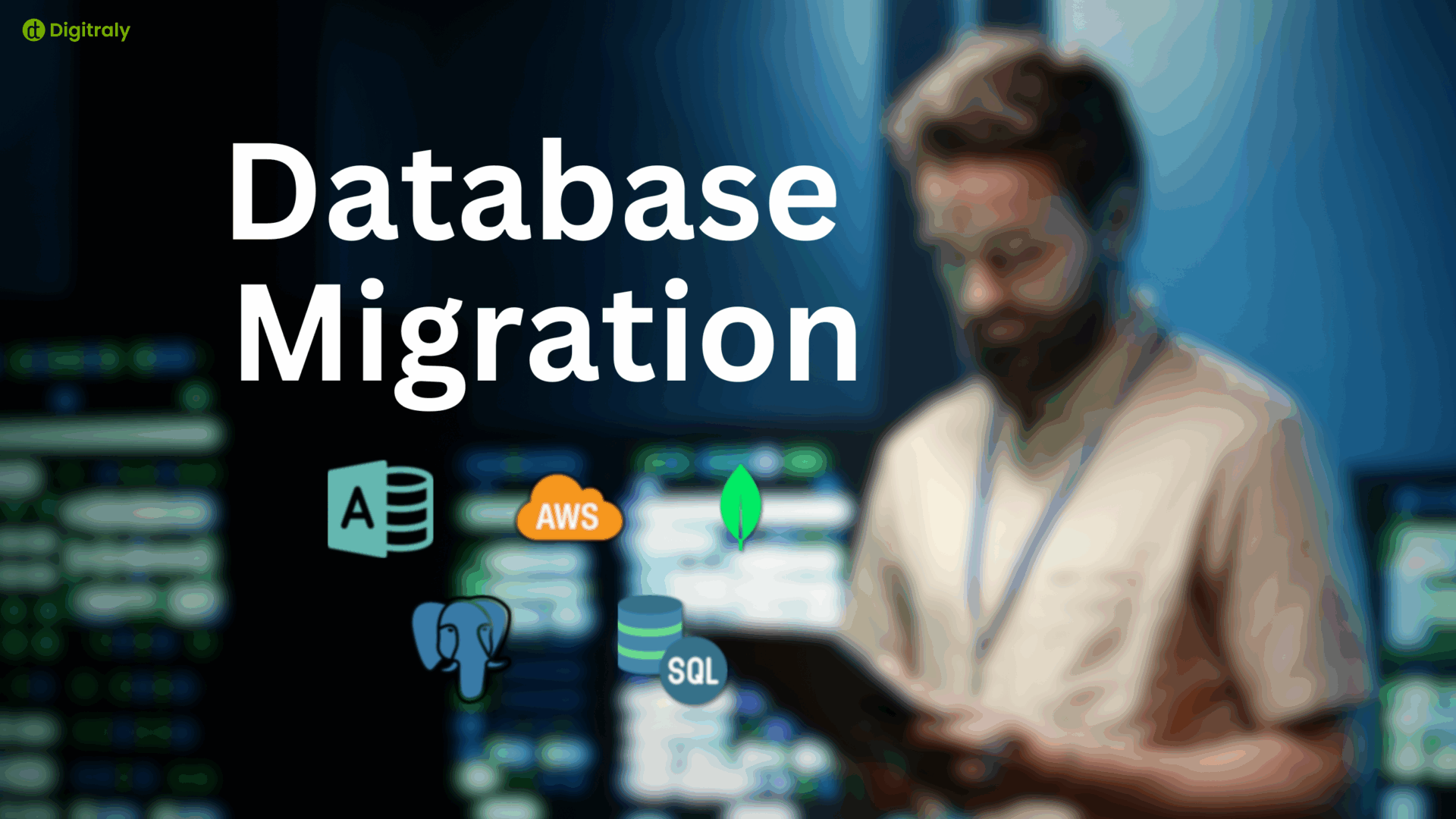Are you looking for ways to streamline operations, boost productivity, and stay ahead in today’s fast-paced digital world?
#informationtechnology #cloudcomputing #erp #digitraly
This article finds the top 10 benefits of information technology for enterprises while integrating crucial concepts such as cybersecurity, digital transformation for enterprises, and emerging technologies.
1. Enhanced Business Operations Efficiency
IT plays a crucial role in optimizing business operations by automating routine tasks, reducing errors, and increasing efficiency. Modern enterprises use Enterprise Resource Planning (ERP) systems to integrate finance, supply chain, human resources, and customer relationship management into a single unified platform. This integration helps organizations make informed decisions based on real-time data.
2. Cost Reduction Through Cloud Computing
Cloud computing allows enterprises to cut costs by eliminating the need for extensive on-premises infrastructure. Businesses can leverage cloud-based solutions to scale operations, improve accessibility, and reduce capital expenses. Whether it is Software as a Service (SaaS) or Infrastructure as a Service (IaaS), cloud computing offers flexibility and cost savings while enhancing operational agility.
3. Strengthened Cybersecurity Measures
With the increasing number of types of cybersecurity threats, enterprises must prioritize security. IT solutions provide advanced cybersecurity best practices, such as:
- Multi-factor authentication (MFA)
- Data encryption
- Firewall protection
- Regular security audits
Additionally, investing in cybersecurity training ensures employees are aware of potential threats, including phishing attacks and malware, thereby reducing vulnerabilities.
4. Improved Collaboration and Communication
IT has revolutionized enterprise communication, enabling teams to collaborate seamlessly across geographies. Tools such as video conferencing, instant messaging, and project management software enhance productivity. Cloud-based solutions, such as Google Workspace and Microsoft 365, allow employees to collaborate in real time, improving workflow and efficiency.
5. Accelerated Digital Transformation
Enterprises are embracing digital transformation to stay relevant in the evolving business landscape. IT facilitates digitalization by enabling businesses to adopt:
- AI-driven automation
- IoT (Internet of Things) integration
- Blockchain for secure transactions
- Big Data analytics for insightful decision-making
By leveraging IT, companies can redefine their business models and customer experiences.
6. Better Decision-Making with Data Analytics
Enterprises generate massive amounts of data daily. IT solutions, such as Business Intelligence (BI) and Artificial Intelligence (AI) analytics, help organizations process data efficiently. Predictive analytics provides valuable insights, allowing businesses to forecast market trends and optimize strategies for growth and profitability.
7. Scalable Software and Application Development
The demand for software and application development continues to rise as enterprises seek tailored solutions. IT enables businesses to develop custom applications that improve workflow, enhance customer experience, and provide a competitive edge. Agile development methodologies, cloud-based DevOps, and low-code platforms have made software development faster and more efficient.
8. Competitive Advantage with Emerging Technologies
The future of enterprise IT is shaped by emerging technologies such as AI, blockchain, and edge computing. Enterprises that adopt these advancements gain a competitive advantage by improving efficiency, security, and innovation. Examples include:
- AI-powered chatbots for customer service
- Blockchain for supply chain transparency
- IoT for smart logistics and automation
Staying ahead with emerging technologies ensures enterprises remain resilient and adaptive in a rapidly evolving market.
9. Enhanced Customer Experience
Customer expectations are constantly evolving, and IT plays a key role in meeting these demands. AI-driven chatbots, CRM platforms, and personalized marketing automation tools allow businesses to deliver superior customer experiences. Data-driven insights help enterprises tailor their products and services to better align with customer needs and preferences.
10. Future-Proofing Businesses Against Disruptions
IT provides enterprises with the tools needed to mitigate risks and prepare for uncertainties. From disaster recovery plans to AI-driven risk assessments, technology helps businesses build resilience against market fluctuations, cyber threats, and operational disruptions. Investing in IT ensures long-term sustainability and growth.
The Evolution of Information Technology for Enterprises
The role of Information Technology (IT) for enterprises has evolved significantly over the decades, transforming business operations, decision-making, and customer interactions.
- Mainframe Era (1950s–1970s) – Large corporations used centralized mainframe computers for data processing and record-keeping. These systems were expensive and required specialized personnel.
- Personal Computing & Networking (1980s–1990s) – The introduction of PCs and local area networks (LANs) made computing more accessible. Businesses started using software applications for accounting, inventory management, and customer databases.
- Internet & E-commerce Boom (2000s) – The internet revolutionized enterprises, enabling online transactions, cloud storage, and global connectivity. Customer Relationship Management (CRM) and Enterprise Resource Planning (ERP) systems became widely adopted.
- Cloud Computing & Mobility (2010s) – Businesses shifted from on-premises servers to cloud-based solutions, improving scalability and cost-efficiency. Mobile applications and remote collaboration tools redefined workplace productivity.
- AI, Cybersecurity & Digital Transformation (2020s–Present) – Enterprises now leverage Artificial Intelligence (AI), data analytics, automation, and cybersecurity best practices to drive efficiency, innovation, and security. Emerging technologies like blockchain, IoT, and edge computing continue to shape the future of IT for enterprises.
Looking Ahead
The future of enterprise IT is centered on hyper-automation, predictive analytics, and enhanced cybersecurity, which will enable businesses to remain competitive in an increasingly digital world.
Final Words:
The role of Information Technology for enterprises is more vital than ever. From cloud computing and ERP systems to cybersecurity best practices and emerging technologies, IT enables businesses to stay agile, competitive, and secure. By embracing digital transformation and leveraging innovative IT solutions, enterprises can achieve sustainable growth and future-proof their operations against technological disruptions.
At Digitraly, we specialize in delivering cutting-edge IT solutions to help enterprises enhance efficiency, security, and innovation. Whether it’s enterprise resource planning, software development, or cybersecurity training, our expert team ensures your business is equipped for the future.
Frequently Asked Questions:
How does technology benefit a business?
Technology enhances efficiency, automates tasks, improves communication, strengthens security, and enables data-driven decision-making. It helps businesses scale operations, reduce costs, and adapt to market changes, ensuring long-term growth and competitive advantage.
Which of the following are the benefits of information technology?
Information technology provides benefits like improved business operations, cybersecurity, cloud computing, enhanced customer experiences, data analytics, digital transformation, and streamlined collaboration. It supports innovation, increases productivity, and helps enterprises stay agile in a rapidly evolving marketplace.
How to choose the right information technology for your enterprise?
Assess your business needs, industry challenges, and scalability requirements. Research emerging technologies, consult IT experts, and prioritize cybersecurity. Invest in solutions like ERP, cloud computing, and custom software that align with your enterprise’s long-term goals and digital transformation strategy.



